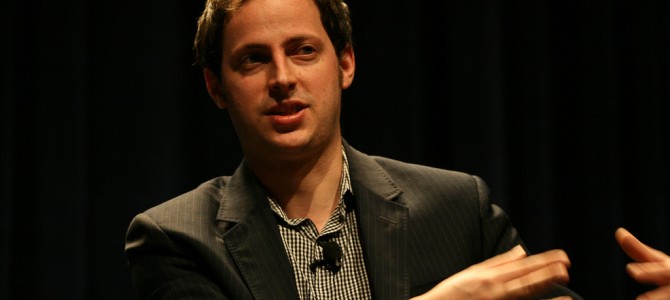See if you find this argument familiar.
Republicans hold the lead in key states, but this unanimous agreement among election forecasters conceals an Achilles heel: We all rely on the same poll data. What if that data is off?… Even in the week before the election, polls are not perfect….When errors occur, the outcome tends to be more favorable to the Democrat.
So a Republican Senate is not guaranteed because “Democrats tend to perform better than the polls predict.”
Yes, that’s right, folks. The polls are skewed.
This argument has become common enough that Nate Silver has felt the need, in what must seem like a flashback, to refute the claim that Mark Udall is really winning the Colorado Senate race because “polling has overestimated GOP support.”
No, this is not exactly the same argument that a lot of us made in 2012—myself included—that the polls showing a narrow re-election victory for Barack Obama might be wrong because they were skewed against Republicans. But it’s close enough, and I can tell you that a few of us on the right are experiencing a little bit of skewedenfreude. That’s a special case of schadenfreude—unseemly joy in another person’s suffering—directed at Democrats who find themselves grasping at the same straws we grasped at two years ago.
I understand the temptation. It’s only two years after a major election victory for your side, when you thought the public had turned your way. For us, it was the Tea Party surge in 2010; for Democrats, it’s Obama’s re-election in 2012.
In 2012, the surge two years earlier led us to stare in disbelief at polls that still showed a massive turnout advantage for Democrats. It wasn’t a crazy notion at all. Surely, we thought, Democratic voters must be more demoralized and Republican voters more energized than that. Hence the conclusion that the polls must be skewed. The only alternative (which, in my defense, I recognized as a possibility) was that few voters yet recognized Obama’s failures, while Mitt Romney was a much more demoralizing candidate than we had hoped. Which turned out to be exactly the case.
In this case, what Democrats want to avoid recognizing in the midterm 2014 polls is that voters have finally begun to recognize President Obama’s failures—a whole passel of them, all at once. They have turned against him and that has spilled over to other Democrats.
But for a political and media establishment deeply committed to Obama’s cult of personality, that’s a hard thing to force themselves to do. The evidence of deep denial is everywhere.
The president has made his share of political missteps, but at least he has managed to avoid giving a Carteresque “crisis of confidence” speech blaming his own poor performance on a “national malaise.” He doesn’t need to, because the New York Times‘s Peter Baker wrote it for him.
In taking office during two overseas wars and the Great Recession, President Obama set out to restore society’s frayed faith in its public institutions, saying that the question was not whether government was too big or small, “but whether it works.” Six years later, Americans seem more dubious than ever that it really does….
David Axelrod, a longtime adviser to Mr. Obama, attributed the doubts about public institutions in large part to a political and news media culture that has gone well beyond healthy skepticism and scrutiny, all the more so in an election season….
Tom Davis, a Republican former congressman from Virginia, said both parties had contributed to the toxic environment, as had an obsessive news media. Every element in the system is rooting for failure.
It’s not Obama’s fault, you see. It’s just that the whole system is out of order. It’s a “toxic environment” created by too much criticism in the news media and too much political opposition.
Even worse is the new narrative that New York Times leftists are building up: if they’re losing the election, it can’t be because their policies have failed or because they’ve lost the argument with the American people. It must be because the election is being stolen by all those evil rich people.
Timothy Egan tells us that “Oligarchs hiding behind front groups—Citizens for Fluffy Pillows—are pulling the levers of the 2014 campaign, and overwhelmingly aiding Republicans.” While Paul Krugman sums it up as “Plutocrats Against Democracy.”
Here’s where the skewedenfreude gets a little less amusing. It’s not just about denying the accuracy of the public opinion polls. It’s about denying the legitimacy of the vote itself.
It’s one thing to let wishful thinking carry you away and make you overoptimistic about your side’s political chances. It’s quite another to impugn the legitimacy of the whole electoral process because you don’t want to admit you’re losing a political argument.
Follow Robert on Twitter.









